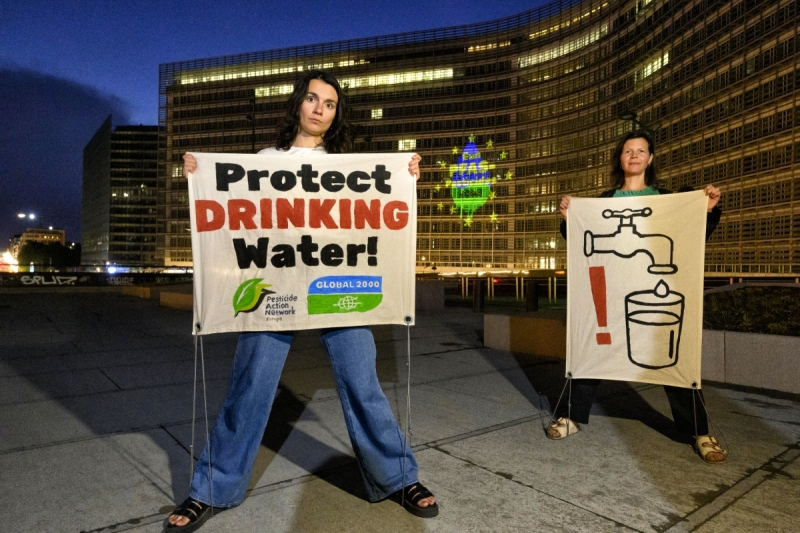The European Commission and Member States will meet on 14 and 15 May this week. The SCoPAFF committee will discuss a possible ban of a TFA-generating PFAS pesticide. This should be the start of the urgently necessary action to protect drinking water and health from TFA pollution. On the table are also four hormone disrupting pesticides. They need to go as soon as possible according to the Pesticide Law, but no concrete proposal to do so is yet on the agenda. And a ‘Toxic 12’ chemical is up for renewal, for continued use in greenhouses.
One substance up for discussion is flutolanil, a PFAS pesticide that breaks down into trifluoroacetic acid (TFA). We found TFA in every single bottle of recent wines we tested from 10 European countries. [1] TFA is a "forever chemical" that contaminates our water and food and is shown to be toxic for reproduction. The Commission has rightfully proposed to ban it but the discussion has stalled already twice by lack of sufficient support by the Member States. [2]
Pesticides that disrupt our hormone system
The EU will also discuss four pesticides that are proven to disrupt the function of the hormone system: fludioxonil, bruprofezin, cyprodinil, and fenoxaprop-P-ethyl. These substances may interfere with human development and fertility, but also impact wildlife. They should have already been banned years ago, but delays in risk assessment have kept them on the market. [3] Now, some Member States are pushing to renew fludioxonil, wrongly referring to an exceptional legal provision allowing harmful substances if they are considered ‘essential’ to control pests. This is despite the Commission acknowledging that the legal conditions for such an exemption are not met. Fludioxonil is not only a hormone disruptor, it’s also a PFAS and the most frequently found pesticide in fruit and vegetables, as it was shown in our Forbidden Fruit report. [4] We are reiterating our call for the ban of fludioxonil and all other endocrine-disrupting pesticides without further delay. [5]
Re-approval of a Toxic 12 pesticide?
Another substance on the table is quinolin-8-ol, one of our “Toxic 12’ pesticides that should have been banned long ago. It is a fungicide that has been classified for nearly a decade as toxic for reproduction. Despite this, the European Commission is proposing to renew it for seven years for use in greenhouses, based on weak and incomplete data suggesting people wouldn’t be exposed. In fact, even the European Food Safety Authority admits it cannot confirm that under these conditions workers, children, and pregnant women would be sufficiently protected from this harmful substance. [6]
Learn more about the Committee meeting:
Learn more about our campaigns:
Notes:
[1] Study reveals alarming surge of forever chemical TFA in European wine
[2] EU SCoPAFF meeting: the end of PFAS pesticides?
[3] Hormone disrupting pesticides (EDCs)
[5] Call to propose the non-renewal of fenoxaprop-P-ethyl and fludioxonil
[6] 'Don’t worry, you will not be exposed to this very harmful pesticide'
